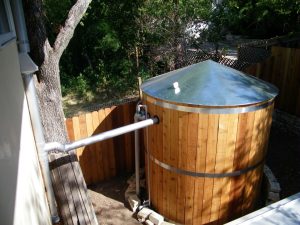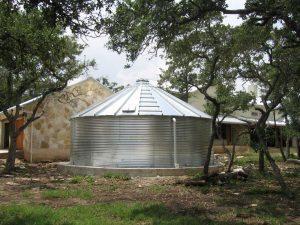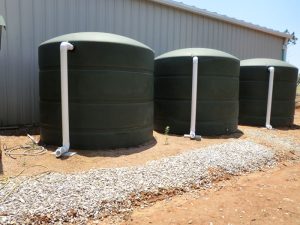In an era where sustainable living isn’t just a preference but a necessity, rainwater collection stands out as a practical solution that benefits both homeowners and the environment. This time-tested practice has evolved from simple barrels beneath downspouts to sophisticated systems that can supplement or even replace municipal water supplies. As water scarcity concerns grow and utility costs rise, harvesting rainwater offers a smart approach to resource management that’s accessible to nearly everyone. Let’s explore how this simple concept can make a significant impact on your wallet, property, and the planet.
Environmental Benefits and Water Conservation

- Components of modern rainwater systems. Source: https://www.watercache.com/portfolio
Every drop of rainwater you collect is one less drop drawn from municipal reservoirs or groundwater sources. This reduction in demand helps preserve these vital resources, especially during dry periods when water supplies are strained. In urban environments, where surfaces like concrete and asphalt prevent natural water absorption, rainwater collection systems intercept precipitation before it becomes runoff. This interception significantly reduces the volume of stormwater flowing into drainage systems, decreasing the risk of localized flooding and erosion while limiting the transport of pollutants into natural waterways.
The environmental benefits extend beyond just conservation. By using collected rainwater for irrigation and other non-potable needs, you’re reducing the energy required to treat and pump water from centralized facilities to your home. This energy reduction translates to a smaller carbon footprint. Additionally, plants often respond better to rainwater than treated municipal water, which can contain chlorine and other chemicals. The natural softness and slightly acidic pH of rainwater make it ideal for gardening, helping create healthier landscapes while supporting local biodiversity and contributing to the overall environmental health of your community.

- Efficient rainwater use for diverse applications. Source: facebook.com
Financial Advantages and Cost Savings
The financial benefits of rainwater collection become apparent almost immediately. By supplementing or replacing municipal water for outdoor uses like lawn irrigation, garden watering, and car washing, homeowners can see noticeable reductions in their monthly water bills. In areas with seasonal water restrictions or tiered water pricing structures, these savings become even more significant during summer months when outdoor water use typically peaks. For those who implement more comprehensive systems that supply water for indoor non-potable uses like toilet flushing or laundry, the long-term savings can be substantial.

- Components of modern rainwater systems. Source: https://www.watercache.com/portfolio
Beyond the direct savings on water bills, many municipalities and water authorities now offer financial incentives for rainwater harvesting. These can include rebates on purchase and installation costs, reduced stormwater management fees, and even property tax benefits in some jurisdictions. While initial setup costs vary based on system complexity, from under $100 for a simple rain barrel to several thousand for whole-house systems, most installations offer excellent return on investment. The payback period typically ranges from a few months to several years, after which the harvested rainwater essentially becomes a free resource for the life of the system, providing ongoing protection against rising water rates.
System Components and Implementation

- Efficient rainwater use for diverse applications. Source: https://www.watercache.com/portfolio
A basic rainwater collection system consists of several key components working together. The process begins with the catchment surface, typically your roof, which directs water into gutters and downspouts. From there, the water passes through a first-flush diverter and filtration system that removes leaves, debris, and other contaminants before entering a storage tank or cistern. Depending on your intended use, the system may also include a pump to provide adequate pressure, additional filtration, and possibly treatment components if the water will be used for potable purposes.
The beauty of rainwater harvesting is its scalability. You can start with something as simple as a 50-gallon rain barrel connected to a downspout for watering gardens or implement a comprehensive system with multiple underground cisterns holding thousands of gallons that integrate with your home’s plumbing. Installation can often be accomplished as a DIY project for simpler systems, while more complex setups typically require professional design and installation. The ideal configuration depends on your specific needs, budget, available space, local rainfall patterns, and intended water uses. Many homeowners start small and expand their systems over time as they experience the benefits and develop a better understanding of their water needs.
Water Quality and Practical Applications
Collected rainwater can serve numerous purposes around your property. For outdoor applications, untreated rainwater is excellent for garden irrigation, lawn watering, washing cars, filling decorative water features, and cleaning outdoor spaces. With basic filtration, rainwater can be used indoors for toilet flushing and laundry. With appropriate treatment—typically including fine filtration, UV disinfection, and possibly reverse osmosis—rainwater can even become a safe drinking water source that often exceeds the quality of municipal supplies, free from chlorine, fluoride, and other treatment chemicals.
Maintaining a rainwater collection system is relatively straightforward. Regular tasks include cleaning gutters, checking and replacing filters, inspecting tanks for integrity, and ensuring that pumps and other mechanical components are functioning properly. During extended dry periods, having a rainwater reserve provides water security and peace of mind, allowing you to maintain your garden or meet essential household needs even when municipal restrictions are in place. This reliability becomes increasingly valuable as climate change brings more erratic precipitation patterns to many regions, with some areas experiencing longer droughts punctuated by intense rainfall events.
